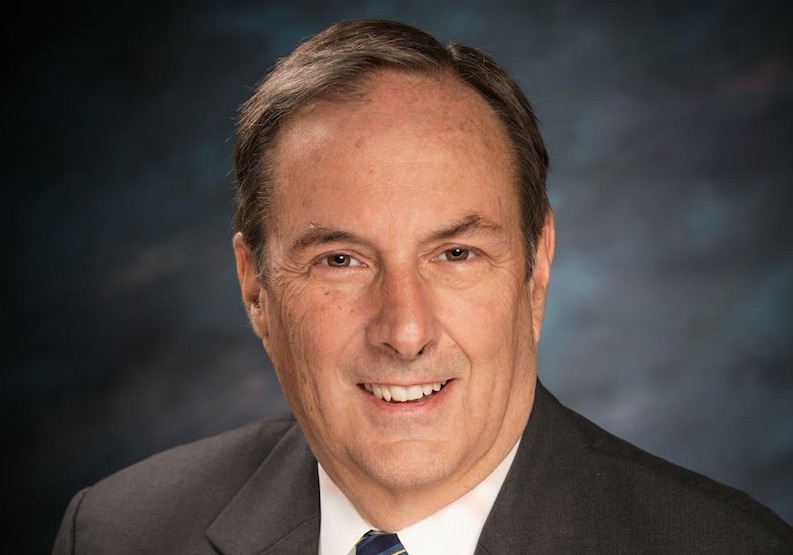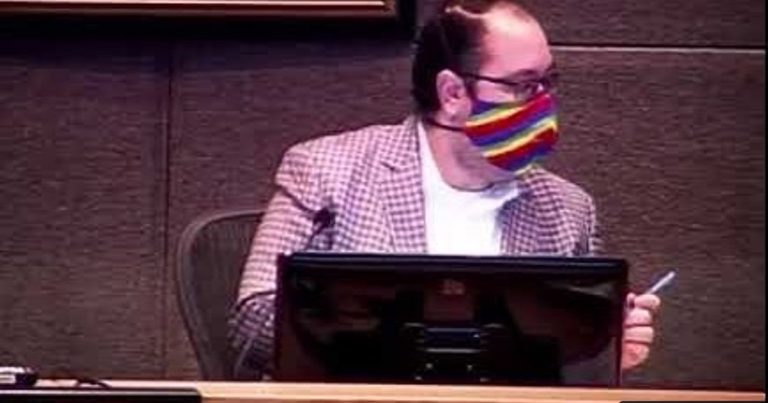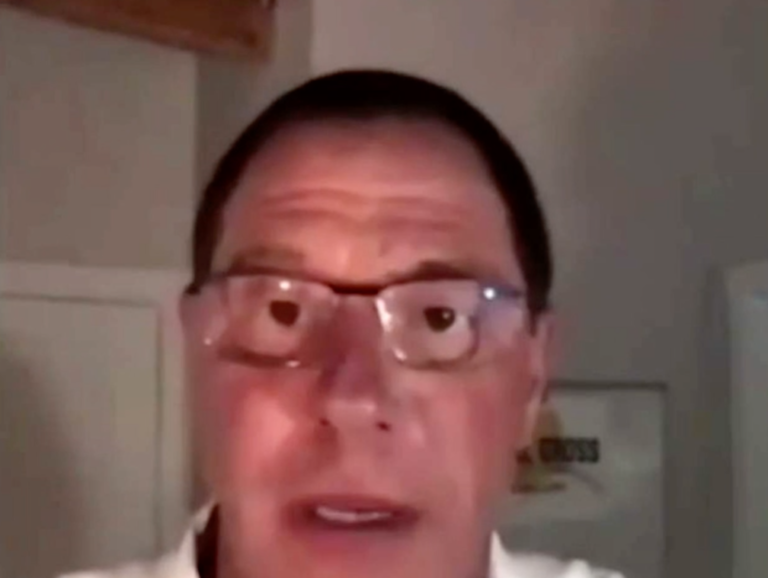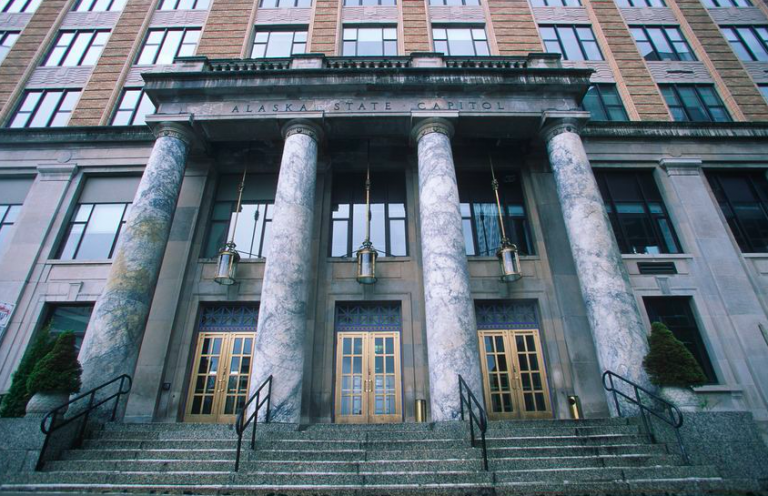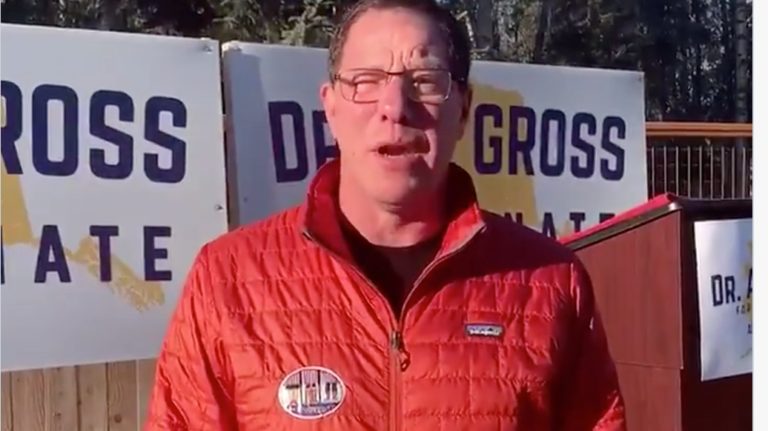By CRAIG E CAMPBELL
Do you think the election process in America is corrupt? The process unfolding in Nevada, Michigan, Pennsylvania and other states is confirming, on a minute by minute basis, that voter integrity is not being protected and voter manipulation is happening.
How can you trust an election outcome if you doubt the legitimacy of the process?
- A box of mail, which included three trays of absentee ballots, was dumped into a ditch in Wisconsin.
- Military ballots from Luzerne County, Pennsylvania were found discarded.
- Poll watchers in Philadelphia, who had validated Watcher Certificates from the Philadelphia County Board of Election, were denied entry into a polling place.
- People illegally handed out campaign brochures to voters while waiting in line to vote at the Olney Recreation Center in Philadelphia.
- Mail-in ballots received after election day with no postage date are counted. No way to verify that the ballot was completed on or before the election. Is the United States Postal Service complicate in voter fraud? Is the Division of Elections allowing post-election ballots to be counted to skew the results a certain way?
Voter integrity is a cornerstone of democracy. Without it, our election process is subject to fraud and abuse, resulting in a lack of confidence that those elected were, in fact, the choice of the people. Voter integrity requires five fundamental absolutes.
The first and foremost is to ensure that every American has the right to vote.
The second is validation that the voter voting is the registered voter and not someone else.
The third is a requirement that every voter be allowed to vote without any undue interference or external influence.
The forth is that each vote is actually counted, as was cast by the voter. Not changed, discarded, or disallowed.
The fifth is transparency, to ensure that every vote is counted as was marked by the voter.
As President Ronald Reagan once said about working with the Soviets, “Trust but verify.” So it is with politics. Observing the ballot counting process protects the integrity of the system. It has been a traditional method of voter verification for decades.
I am appalled by the actions taken by some election officials in this election to potentially manipulate the outcome. Allowing a vote counting process to be conducted by denying poll watchers their legal ability to observe the vote counting process creates the perception that unlawful activities are permissible.
I am equally offended by election officials that have permitted ballots counted that were not signed, could not be verified that the vote cast was actually completed by the registered voter, counted people who no longer lived in that district or state, had died, or it could not be confirmed that the ballot was cast on or prior to election day.
It should not be this way. Voter registrations can be verified and purged of individuals no longer eligible to vote in a specific location. Elections can be conducted with full transparency and accountability, where all participants can agree on the end result, win or loss. I speak with scar tissues from past elections.
While serving as Alaska’s lieutenant governor, I had the honor (or rather the responsibility) to oversee our states election process during a very contentious election cycle. As you may recall, that year Joe Miller ran against Senator Lisa Murkowski in the Republican primary. Joe Miller won the primary. Senator Murkowski subsequently filed to run in the general election as a write-in candidate.
In the 2010 General Election, Miller garnered 35% of the vote; however, 40% of the total votes were write-ins that were not counted until after election day. To finalize the general election vote count, a hand count was conducted in Juneau. Both Miller and Murkowski were allowed to have poll watchers at the site during the count.
In fact, poll watchers from both sides were able to look directly over the shoulder of any person counting votes to verify the vote. They were able to challenge the marking or spelling of each and every ballot cast. At the end, I affirmed that Murkowski prevailed. Miller sued the State and lost in court. He conceded in December.
Compare that to today, where in Philadelphia poll watchers were restricted from being in close proximity of the people actually counting the vote. How can you verify the marking if restricted from being close? How can you verify the legitimacy of the ballot? This restriction on an open process only leads one to conclude there must be some nefarious actions being taken to manipulate the voting outcome.
Maybe I’m wrong, but their actions certainly don’t convince me I am.
Objective voter verification is an absolute requirement if we want to convince the public that elections are fair. I would submit that verification by government officials alone is not convincing. Verification needs to be done by all affected parties, which means candidate representatives that have been identified as certified poll watchers. This does not create an unfair election process. Rather, it confirms the fairness of the system, process, and outcome.
I have some recommendations for changes in Alaska:
- The Legislature should enact a law mandating that all ballots must be received by midnight on Election Day to be counted. None of this one week later stuff to count absentee and mail-in votes.
- We must reinstate the requirement for witness signing of all mail-in and absentee ballots. To hell with a stupid court ruling. They are wrong when it comes to maintaining voting system with integrity. When you vote in person, verification that the person voting is the same person registered to vote is required.
- Prohibit ballot harvesting from any third party. This idea that someone can go around and collect ballots is ludicrous. It allows for gross voter manipulation by opening the door that the person collecting the ballots could also be influencing the voter or worse, marking the ballot for them.
- Increase penalties for campaigning at polling places.
- The State Division of Elections must pursue an aggressive voter registration verification process to remove from the voter registration list prior to every election those who have moved out of state; those who have moved between districts; those who have died; and those who are no longer eligible to vote.
Fair elections are crucial to the survival of a healthy democracy. Our democratic republic is based on the principle of “one person, one vote.” That means a legal and legitimate vote by each of us eligible to vote, not multiple votes by individuals; not votes cast by someone other than the actual voter; not votes cast based upon undue influence to a voter at the time the vote is cast; and it certainly means having all votes counted, not lost in ditches, misplaced, or discarded.
If this election has taught us one thing, it is that our election system needs a major overhaul. Without it, we will only see more corrupt voting shenanigans by corrupt people, organizations, and governments who have contempt for the American people, and intend to continue manipulating elections to deprive us all of our constitutional rights for fair and honest elections.
Why? Because to them the ends justify the means.
Craig E. Campbell served on the Anchorage Assembly between 1986 and 1995 and later as Alaska’s Tenth Lieutenant Governor. He was the previous Chief Executive Officer and President for Alaska Aerospace Corporation. He retired from the Alaska National Guard as Lieutenant General (AKNG) and holds the concurrent retired Federal rank of Major General (USAF).

